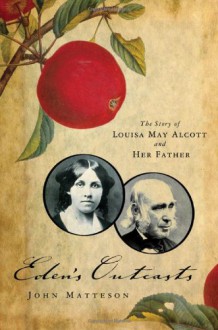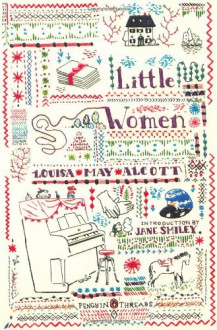
I read this for The Alcott Event, happening in a private group over on TSTWNBN. When I began reading this, I mistakenly believed that it was one of her early novels. I was quite wrong about that - according to Wikipedia, it was published in 1873, after both Little Women and Little Men, as well as after her melodramatic stories that were published in the 1860's. So, looking at it with this in mind, some of what I thought were the seeds of Little Women are really more recycled bits from that particular book.
This is not Alcott's best work, which makes sense, since it is a largely forgotten story. Written for adults, it is more overtly political even than her other books, with very obvious feminist and abolitionist overtones. Well-worth reading, Alcott is somewhat heavy-handed in her moralizing.
The book generally tells the tale of a young woman, Christie Devon, who leaves the care of her resentful uncle and long-suffering but loving aunt and seeks employment to make her way in the world. She is engaged in various fairly menial jobs: governess, companion, actress, seamstress, and struggles to support herself. Many issues are addressed, and Alcott's abiding abolitionist beliefs are openly articulated.
There were a couple of things that I found particularly interesting about the book. First, reminiscent of the proposal of Laurie and Jo's refusal to marry him, Christie also turns down a proposal from a wealthy gentleman. There are shades of Pride and Prejudice, as well, in the dialogue from this section of the book. Christie initially turns him down politely, and when he reacts badly, we have a very "Lizzie Bennett" moment where she calls him out for his sense of superiority. It left me wondering if Alcott had read P&P close in time to writing the book - the scenes were so similar.
In addition, it has a bit of a WTF ending. Alcott is a deeply religious woman, and believes fervently (as many of her era did) in a heaven. The book takes place during the years of the Civil War and much is made of the heroic sacrifice of the men and women who fought for the union and who died, or had loved ones die, in the war. Louisa always was one for the grand sacrificial gesture - if you are looking for a traditional happily ever after for our heroine, well, you're not going to get one.
Anyway, it was an interesting read. A bit too sweet and preachy for my taste, but, still, Alcott was a very principled woman, and it was interesting to read something that is so clearly feminist and egalitarian from the early part of my nation's history.
Next up from the Alcott canon is Eight Cousins. This one is much more fun than Work.

 Log in with Facebook
Log in with Facebook 










